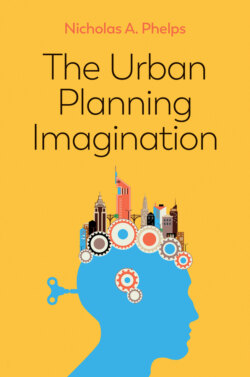Читать книгу The Urban Planning Imagination - Nicholas A. Phelps - Страница 18
Citizens
ОглавлениеSome form of spatial awareness, organization and planning has been vital to survival, since to dwell in a place is to have regard for ‘things to hand’ (Heidegger, 2010). This is the existentialist sense in which planning precedes rationality rather than being guided by it (Hoch, 2019). These individualistic urban planning tendencies are an irrepressible aspect of human nature. The mass expression of need for shelter across the global south may instead be latent in the highly regulated planning systems of the global north. Regardless, ‘citizens correctly assume that they know something about planning without having studied it formally’ (Levy, 2016: 94).
On the one hand, then, the continuing concern in the global north to define and protect the planning profession as primarily a statutory activity seems out of place when marginalized peoples – in the global north and south – take into their own hands the task of organizing their housing and, by extension, their immediate neighbourhoods and cities (Miraftab, 2009). The lay knowledge and emotional intelligence of citizens are things we might reasonably wish to better incorporate into the planning of our cities (Hayden, 1997; Hoch, 2019). Yet it is as well to remember that ‘Citizens, like elites, can be misguided and self-serving’ (Fainstein, 2010: 32), whether in NIMBY (‘not in my back yard’) protests against development or in opportunistic capturing of the spoils of urban development. In the absence of political will and bureaucratic resources to address vexed issues of compensation and betterment (chapter 4), local government planners can appear powerless to shape equitable outcomes from the development of cities.
It is important to recognize citizens as a distinct set of actors in the building of our cities. As ‘users’, citizens have an intense interest in the city form and function even if they are perhaps the least powerful of actors shaping it (McGlynn, 1993). ‘A viable notion of empowerment of the poor requires an appreciation that empowerment is functionally an individual process that deepens with time if individual efforts are consciously embedded in more collective forms of … mutual empowerment’ (Pieterse, 2008: 7–8). Indeed, citizens often participate in groups or clubs of diverse complexion and influence (Levy, 2016: 98), and it is these collective or club forms of mutual empowerment I turn to as a second category of urban planning actors.
